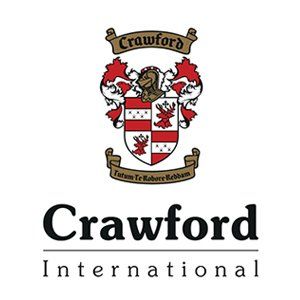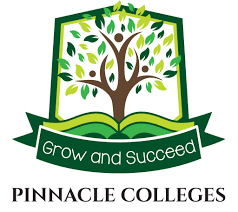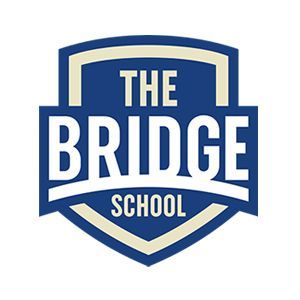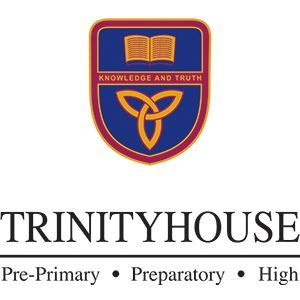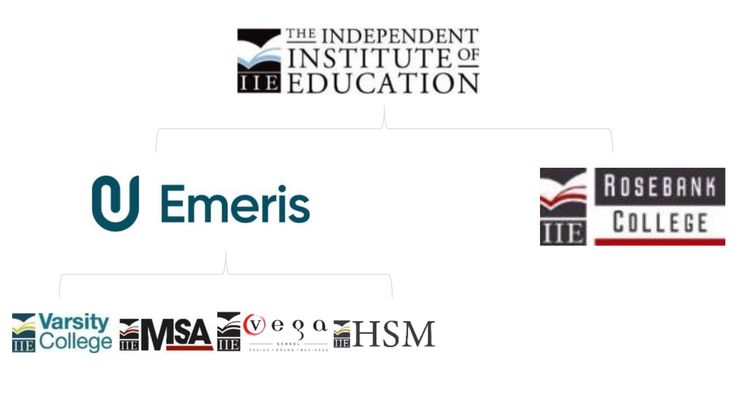Our Brands
The Core of Our Business
ADvTECH remains Africa's leading private education provider and our commitment to academic excellence is at the core of our strategy and is fundamental to ADvTECH’s success.
Create exciting campaigns that attract attention
Benchmarking our performance
Learning and other analytics
International and employer recognition
News Desk

Children between ages 10 and 12 are at a fascinating stage of life. They’re no longer little kids, but they’re not yet teenagers. They’re starting to ask bigger questions, push boundaries, and search for who they are becoming. Amid all these changes, reading plays a powerful role, and schools and parents should strongly encourage students to build their reading muscle during this time, an education expert says. “In contrast to content on devices, books give children a safe space to explore new ideas, test out possibilities, and imagine life through someone else’s eyes. They also strengthen critical thinking, boost vocabulary, and build empathy - all skills that help pre-teens navigate school and friendships with more confidence,” says Nalani Singarum, Academic Advisor at ADvTECH Schools. “Most importantly, reading at this age lays the foundation for a lifelong habit. A child who enjoys books at ages 10 to 12 is far more likely to carry that love into their teenage years, when the pull of social media and other distractions becomes stronger,” she says. A 2024 study of children aged 10 to 12, by neuroscientists at Columbia University’s Teachers College, found that reading on paper promoted "deeper reading" with better comprehension and processing of complex texts. It was noted that this age group is pivotal for transitioning from "learning to read" to "reading to learn”, making physical books ideal for exploring ideas and imagining others' perspectives without digital distractions. “Even where children at this age did not previously enjoy reading books, it is not too late to develop a regular and enjoyable reading habit,” says Singarum. “Regular reading during this key developmental period will support stronger understanding across subjects, better information absorption, and clearer expression of ideas throughout the child’s life.” CREATING A READING-RICH HOME Pre-teens crave independence, yet they still look to their parents for cues. The best way to nurture reading at this age is to show that it’s valued at home - not as a school task, but as part of family life. Practical ways to create a reading-rich environment include: Bedtime shifts: Before bedtime, spend some time reading side by side. You each choose your own book, then share a favourite line or moment. It shows that reading is for everyone, not just a chore for children. (And no, reading on devices do not count). Reading in everyday life: Invite your child to read maps while travelling, menus at restaurants, or DIY instructions at home. These moments prove that reading has value beyond the classroom. Word of the day challenge: Let your child pick an unusual word from a book and challenge the family to use it naturally in conversation. Older children enjoy the playful competition and sense of mastery. Treasure hunts with riddles: Write riddles or codes your child must solve to find the next clue. Link some clues to favourite books for an extra spark. Peer power: Encourage your child to swap books with a friend or start a mini book club, to make reading become a social, not a solitary activity. THE ROLE OF SCHOOLS Beyond the curriculum, schools play a key role in creating an environment where reading is valued and enjoyable, which helps students build positive associations with books and learning. “Schools offer social and collaborative opportunities that enhance reading motivation and enjoyment. By fostering a love of reading within a communal and supportive learning environment, schools complement and extend the encouragement children receive at home, making the development of reading habits more comprehensive and durable,” says Singarum. She adds that it is valuable to have structured programmes, rather than just ad hoc reading opportunities. “At ADvTECH, we have a reading programme called Booktacular, which is specifically designed to make reading meaningful and magical again. Through activities like Book Clubs that spark lively conversations, creative ‘Book review in a bag’ projects, Literature Circles where every child takes on a role, and Visual literacy tasks that bring pictures to life, children discover that stories are adventures to be explored, not assignments to be completed.” Parents can extend this spirit into their homes with small, joyful habits like these. When reading feels playful and purposeful, children are far more likely to carry that joy into their teenage years and beyond, Singarum says. “Between ages 10 and 12, children are shaping their identities. They’re learning who they are, who they want to be, and how they see the world. Books offer them mirrors to see themselves and windows to step into lives very different from their own. “As parents and teachers, when we nurture a love of stories, we’re not only supporting school success, we’re giving our young people tools for life.”

The traditional dichotomy between commerce and the humanities has long been a fixture in academic and professional landscapes. However this historic status quo is no longer tenable, and universities must adapt to ensure curricula contain a suitable blend of disciplines to empower students for life after studies, an education expert says. “Combining commerce and humanities creates a powerful synergy that enhances decision-making, innovation, and adaptability in business,” says Peter Kriel, General Manager at The Independent Institute of Education, SA’s leading private higher education provider. “This interdisciplinary approach also produces well-rounded professionals who can address the complex challenges of our current world, and the ones they will face in future,” he says. Kriel explains that while universities traditionally had commerce and humanities students stay in their lanes, there is a growing recognition of the synergies that exist at the intersection of these seemingly disparate disciplines. “It is therefore becoming important to delve into the benefits and possibilities of bridging and intersecting the so-called traditional commerce and humanities disciplines, highlighting how this convergence can lead to innovative thinking, enhanced problem-solving, and a more holistic approach to navigating the challenges of the modern world,” he says. The intersection between commerce and humanities represents the blending of analytical and creative thinking. Commerce brings a structured, business-oriented approach, while humanities bring a focus on critical thinking, cultural understanding, and ethical considerations. “Together, these disciplines offer a unique perspective that goes beyond the quantitative aspects of business” says Kriel. Better decision-making The integration of humanities into commerce fosters a more comprehensive decision-making process. By considering ethical, social, and cultural implications, businesses can make informed choices that align with broader societal values. This not only contributes to corporate social responsibility but also enhances the reputation and sustainability of organisations. Innovation through diversity Bridging disciplines encourages a diverse range of perspectives and ideas. The humanities bring creativity, empathy, and an appreciation for diverse cultures, which can lead to innovative solutions to business challenges. A multidisciplinary approach fosters a culture of innovation that goes beyond conventional problem-solving methods. Improved communication Humanities disciplines, such as literature, philosophy, and communication, emphasise effective expression and understanding of human experiences. Integrating these skills into the business realm promotes clearer communication within organisations and with external stakeholders. The ability to articulate ideas, negotiate effectively, and understand different points of view becomes a valuable asset. Ethical leadership Humanities education often emphasises ethical reasoning and moral philosophy. Integrating these principles into commerce promotes ethical leadership, guiding decision-makers to consider the broader impact of their choices on society, the environment, and future generations. Resilience The business landscape is dynamic, and the ability to adapt is crucial for success. Humanities education encourages adaptability by fostering critical thinking, intellectual curiosity, and a willingness to engage with new ideas. This mindset is invaluable in navigating the uncertainties and disruptions that businesses frequently encounter. “As the nature of work evolves, employers increasingly seek individuals with a diverse skill set that goes beyond technical proficiency. The intersection of commerce and humanities prepares individuals for the future of work by combining analytical and creative skills, making them well-rounded professionals capable of addressing complex challenges,” says Kriel. “This combination represents a powerful synergy that can redefine how we approach business, education, and societal challenges. By breaking down the barriers between these disciplines, higher education institutions can ensure that they not only cultivate more versatile and innovative graduates, but also foster a society that values both economic success and human flourishing.”

ADvTECH Limited (Incorporated in the Republic of South Africa) (Registration number 1990/001119/06) Share code: ADH ISIN: ZAE000031035 (“ADvTECH” or “the Company”) DEALINGS IN SECURITIES BY A PRESCRIBED OFFICER OF THE COMPANY In compliance with the JSE Limited Listings Requirements the following information is disclosed in respect of dealings in ADvTECH securities by an ADvTECH Prescribed Officer.


